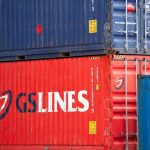Workers at six grain terminals in the Canadian port of Vancouver have reached a tentative deal on September 27, ending a strike potentially impacting exports from the world's top canola and number three wheat exporter during the harvesting period.










Teamsters say decision sets dangerous precedent, will challenge the move in federal court if needed
